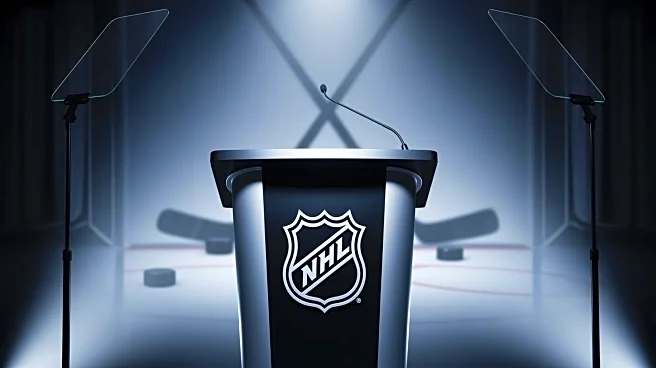What's Happening?
NHL Deputy Commissioner Bill Daly has clarified that the league is not actively pursuing expansion before 2030, despite speculation about adding new teams. This comes as the NHL approaches the expiration
of the current Collective Bargaining Agreement (CBA) with the NHL Players' Association, set to begin in 2026. The speculation is partly fueled by the fact that expansion fees, expected to be at least $2 billion, are not considered hockey-related revenue and do not contribute to the 50/50 revenue split between players and owners. Recent expansions include the Vegas Golden Knights and Seattle Kraken, with discussions about potential new franchises in Atlanta and Houston.
Why It's Important?
The potential expansion of the NHL could significantly impact the league's financial landscape, particularly regarding revenue distribution between players and owners. Expansion fees have historically not been shared with players, which could become a point of contention in future CBA negotiations. The addition of new teams could also alter the competitive balance within the league and affect market dynamics in cities like Atlanta and Houston. As the NHL continues to grow, these decisions will shape the league's strategic direction and influence its economic model.
What's Next?
While no official plans for expansion are underway, ongoing discussions with interested groups in cities like Atlanta suggest that the NHL is open to considering new franchises. The league will likely continue to evaluate proposals and market conditions before making any decisions. The upcoming CBA negotiations will be crucial in determining how expansion fees are handled and whether players will receive a share of this revenue. Stakeholders, including team owners and the NHLPA, will play key roles in shaping these outcomes.










